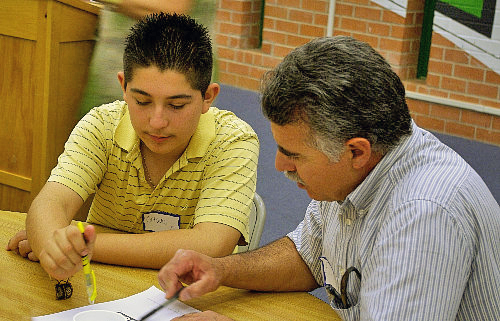Building Self-Awareness
We began our pilot program with one-on-one coaching and then added the Coaching Office. We later felt that we left out a key element that could have supported the coaching interactions.
We assessed that by developing and engaging teens in a “developmental process” first with experiential learning and discovery, youth would be better prepared for the process of coaching. They would then come to the coaching conversations with a clearer understanding and greater awareness of their choices, goals, plans, and dreams for their futures.
With that in mind, we created and provided a Small Group Curriculum based program to a cadre of teens at a youth supporting agency. At the end of the four-session program, their responses told us these two things:
- They had increased their engagement in the process and with each other.
- They expressed high levels of clarity and self-empowerment on their post-assessment interviews.
From this point, if they wished to “try out” coaching, either the 1:1 program or the Coaching Office could be available to them. The Coaching Office would allow them less commitment and greater flexibility.
These sessions were created around four elements of learning. They included plenty of experiential exercises and associated worksheets, opportunities for discovery and discussion, and homework in between sessions. As the sessions progressed, it was exciting to observe the teens shift towards self-empowerment, and engage and connect with their possibilities.
The four elements were:

- Who Am I?
- Who Am I With Others?
- How Can I BE and Stay ME?
- My Plan
Leading up to the sessions, we posed such questions as:
- How can what I believe in guide and empower me?
- What are my special gifts and talents?
- How do I create MY plan for MY success?
- How do I build a network of people who will be there for ME?
Be yourself. The world worships the original. — Ingrid Bergman
Two of the teens shared what they found helpful to them at the end of the program:
- “Now when I am stressed I have some tools to find solutions that will support me.”
- “What changed for me is that I can react to others differently and have real conversations.”
We asked, “What would you tell your friends if they said they were interested in signing up for this program.” One teen replied:
That this series will help them with finding out who they are.
Small Group Curriculum
Touch Point Connection’s desire to support adolescents – to build their futures – continues with our offer of the outline and complete curriculum below.
Session 1: Who I Am, Who I Can Be & Who I Can Become
Session 2: Stepping Into…..Who I am, Who I am with others
Session 3: Stepping Into Who I Am: Next Steps & Support Network
Session 4: Stepping Into…. Putting Concepts into Action


